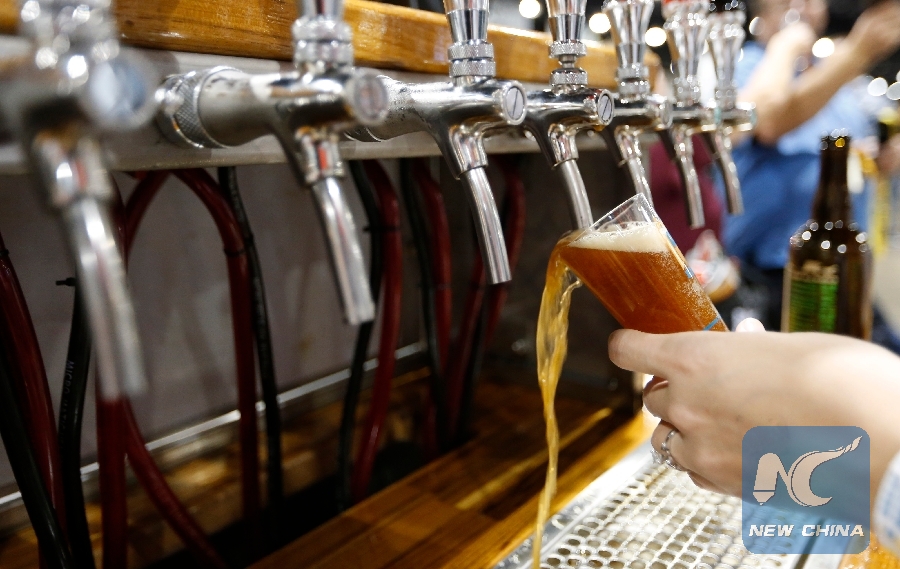
File Photo: A brewer serves beer during the 2018 Great American Beer Festival (GABF) in Denver, the United States, Sept. 21, 2018. (Xinhua/Li Ying)
WASHINGTON, March 26 (Xinhua) -- The U.S. beverage industry paid about 250 million U.S. dollars in Section 232 tariffs for aluminum cansheet between March and December last year, and the industry is "overpaying," according to a recent study.
The Beer Institute, a national trade association representing the U.S. brewing industry, said Monday that brewers are overpaying for cansheet since the 232 tariffs on aluminum took effect a year ago, citing a study done by Harbor Aluminum, a research firm that specializes in the aluminum industry.
The U.S. Treasury Department collected only around 50 million dollars out of the 250 million dollars, while the rest went to American rolling mills and smelters, according to the study.
U.S. cansheet contains 70 percent domestic aluminum scrap -- recycled metal remaining in the country, which is exempted from Section 232 tariffs, the Beer Institute said. However, the U.S. beverage industry paid a tariff for all of the aluminum cansheet as if it consisted entirely of imported primary aluminum, which means rolling mills and smelters are overcharging end users via tariff-paid price.
"I have heard from brewers large and small from across the country who are seeing their aluminum costs drastically increase, even when they are using American aluminum," said Jim McGreevy, president and CEO of the Beer Institute.
In March 2018, President Donald Trump announced that the United States will slap a 25-percent tariff on steel and 10-percent tariff on aluminum, citing Section 232 of the Trade Expansion Act of 1962, which allows the administration to impose tariffs on imported products on national security grounds.
The move has drawn criticism from business groups and provoked retaliation from its trading partners including Canada, Mexico and the European Union.
The Trump administration has repeatedly invoked the previously seldom-used Section 232. In February, the U.S. Commerce Department concluded a Section 232 report on imported cars and parts, and in July last year, it launched investigations into uranium imports, and most recently, it initiated its probe into titanium sponge imports earlier this month.

